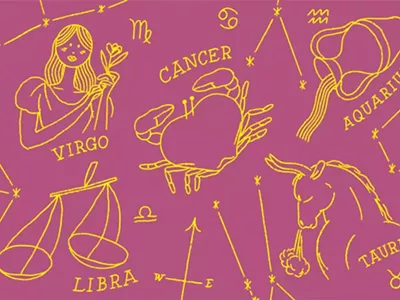Once again, as it has done for the past 45 years, Sault Ste. Marie's Lake Superior State University started the year by releasing its "Annual List of Words Banished from the Queen’s English for Mis-use, Over-use and General Uselessness." As always, it's a fun read: "Literally," "totes," "I mean," "vibe," "living my best life," and "influencer" are all rightly skewered here — words and phrases that have become popularized by the younger generations before they trickle upward to the older generations, where they will inevitably be further misused, overused, and eventually rendered uncool.
Speaking of the older generations, the last phrase on the list to be banned is "OK, Boomer." According to LSSU:
OK, Boomer: This phrase caught on late this year on the Internet as a response from millennials to the older generation. Boomers may remember, however, that generational tension is always present. In fact, it was the Boomers who gave us the declaration: “Don’t trust anyone over 30!”
On this point we must politely but strongly disagree with the logophiles at LSSU. Please don't take "OK, Boomer" away from us just yet — we're just getting started.
According to the excellent researchers doing God's work at Know Your Meme, the phrase is "a dismissive retort often used to disregard or mock baby boomers and those who are perceived as old-fashioned and being out-of-touch." While its exact origins are unknown, according to Google Trends the phrase took off this year, buoyed by users of the social media app TikTok in response to a viral clip in which a white-haired man in a baseball cap and polo shirt declares, "The millennials and Generation Z have the Peter Pan syndrome, they don’t ever want to grow up."
As LSSU points out, generational warfare is nothing new. For as long as I've known the word "millennial," the older generations were using it as a pejorative to write off my generation as entitled, lazy, smartphone-addicted special snowflakes. We were accused of spending too much money on frivolous things like coffee and brunch, and "killing" institutions that boomers apparently held sacred, like homeownership, department stores, chain restaurants, golf, and diamonds.
Of course, millennials weaponizing memes against baby boomers is nothing new either. Back in 2013 there was "Old Economy Steve," an embodiment of the rage millennials had as they struggled to find careers in a broken economy, saddled with ballooning student debt. A bitter resentment began to simmer as millennials realized that the boomers lucked into a period of relative prosperity, and much of the life advice they gave us was obsolete at best. Millennials weren't just "killing" things out of gleeful iconoclasm — we can't afford this shit because we're "playing a game that is impossible to win," as a Huffington Post long-form story expertly spelled out, or as Vox more directly stated, "the baby boomers — not millennials — screwed America."
Then, we watched in horror as boomers helped elect President Donald Trump, the ultimate example of a clueless boomer who lucked into prosperity. (It's also worth pointing out that "quid pro quo," LSSU's top phrase to ban in 2020, only entered the popular lexicon because of Trump's misdeeds.)
And this is why "OK, Boomer" works so well. It's at once both pointed and zen-like, an indictment but also a mantra. It's a way to shut down arguments from a helplessly clueless bloc that has frankly had the mic for too long. It's also a rallying cry. The oldest millennials are nearly 40 now. We're not kids anymore.
Stay on top of Detroit news and views. Sign up for our weekly issue newsletter delivered each Wednesday.








